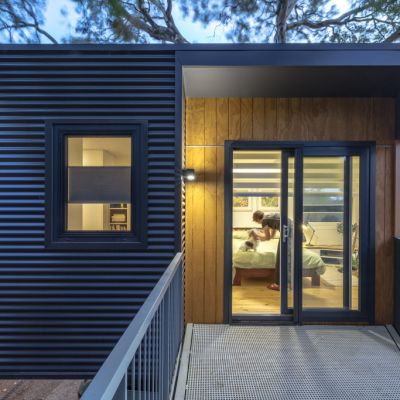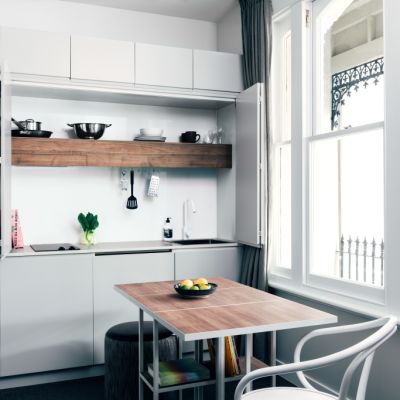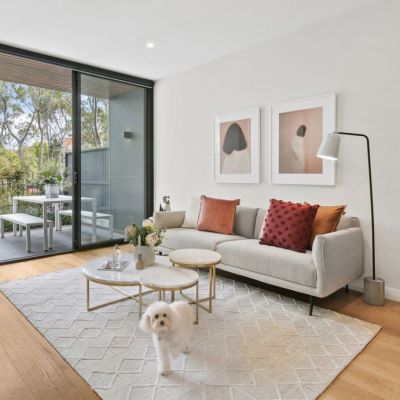'Notes are a downward slide': Five flatmate nightmares and how to solve them

Share house living is on the rise, with more renters choosing to live with others for affordability, the social aspect, or both.
In Melbourne, 5 per cent of all households are shared, while in Sydney it’s 4.7 per cent according to the most recent census.
I lived with others for over 10 years and while there were good times, there were also some times I’d prefer to forget.
Unfortunately, disagreements and conflict can arise. It turns situations like mine were quite common but, luckily, most are avoidable.
1. Communication breakdown
One of my flatmates avoided confrontation at all costs. But instead of bottling the anger up inside her, she would leave little notes around the house.
When I saw her, it was like the notes never existed and she was all smiles. I started to leave my own notes and eventually I got a note saying she was moving out.
“Notes are a downward slide,” said Flatmate Finders owner Guy Mitchell. “You don’t know how that person is interpreting that note.”
Mitchell suggests a weekly meeting to air any grievances you may have. “It might be a bit old-fashioned, but it’s a good idea. Having those face-to-face conversations will avoid things like emails, text messages and notes.”
2. Financial tensions
According to Flatmate Finders, Pyrmont is Sydney’s most expensive suburb for share housing. A room there averages at $385 per week, which is enough to rent a whole house in other parts of the city.
Mitchell says most complaints about flatmates are to do with money. Conflicts can arise when one flatmate gets behind in the rent, or finds out they’ve been paying a lot more than the others for the same sized room.
“You need to have those conversations, even formal agreements on the rent and how much notice to give, paying bond and when bills will be paid,” Mitchell said. “You need to have those sorts of agreements in advance.”
3. Visitors in the night
A girl I shared with had a lot of “friends” over in the middle of the night, which was quite serious from a safety point of view as the other flatmates didn’t know who else was in the house.
These situations can be avoided in the interview, Mitchell says. “When you interview your flatmate you can ask those questions. ‘How do you feel about not bringing people home during the week or not bringing a random person home we haven’t met before from Tinder?’ Have a conversation about how you dealt with that in the past.”
Another regular conflict is when one flatmate’s partner starts spending all their time in the house, meaning the house may have gone from a two-person to a three-person house. A weekly meeting to discuss visitors could solve these issues.
Getting too cosy with flatmates is a common “rookie error”, Mitchell says. “The biggest mistake people make only once is sleeping with their flatmate. That turns into a massive disaster then they never do it again.”

4. Different standards
I’m quite an easygoing person, and over the years I have lived with people who found I was too easygoing with cleanliness.
I would leave my bowl in the sink or cup on the table, inevitably leading to a war of notes.
“A lot of people go to flatmate interviews thinking ‘I’ll see if they’re nice and if I like the place’,” says Mitchell.
But you need to be honest with who you are and who they are after. If you are not a clean freak, it’s very hard to become one to please a flatmate.

5. Mismatched personalities
A few of my flatmates were not very social, and sometimes days would pass and I wouldn’t see them.
It’s important to look for someone with shared values at the interview stage. If you want someone to share a cuppa at the end of the day, you need to bring that up in the interview.
“It’s about knowing yourself and your tolerances and your flexibility as well, and getting a handle on that first,” Mitchell said. “And thinking, ‘this is what I require’ and going ahead with that when interviewing somebody.”
Looking for your next home? Take a look at Domain’s Ultimate Guide To Renting.
We recommend
States
Capital Cities
Capital Cities - Rentals
Popular Areas
Allhomes
More
- © 2025, CoStar Group Inc.










